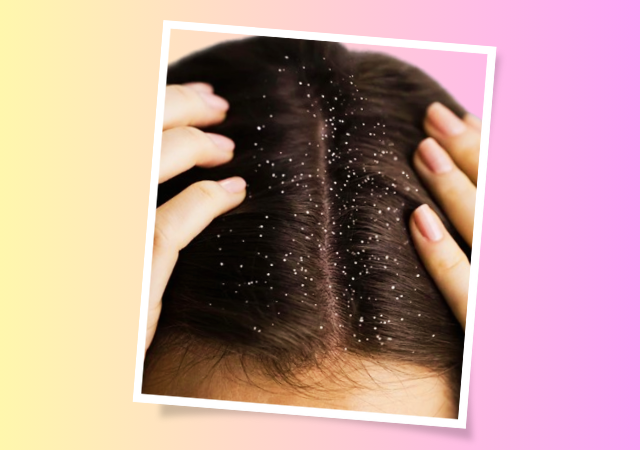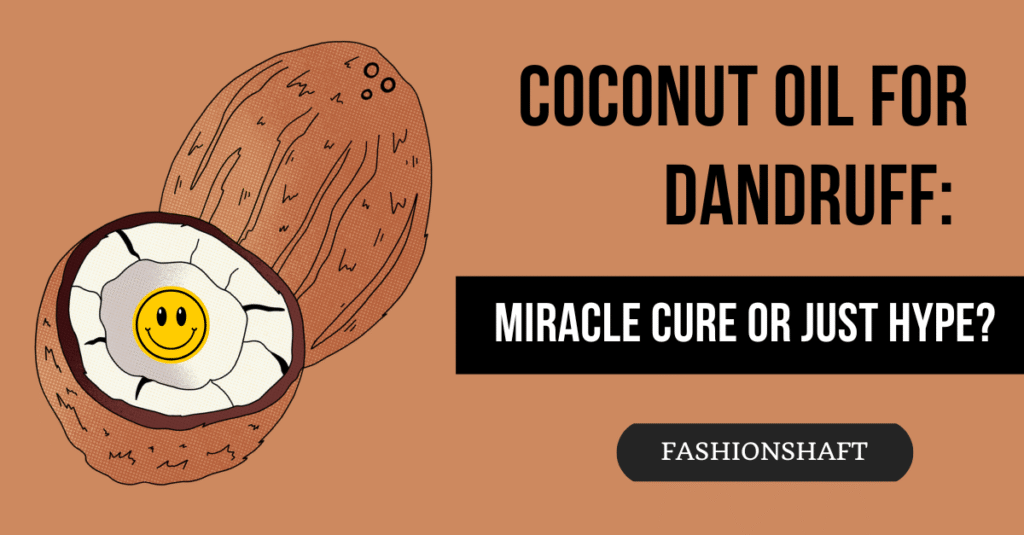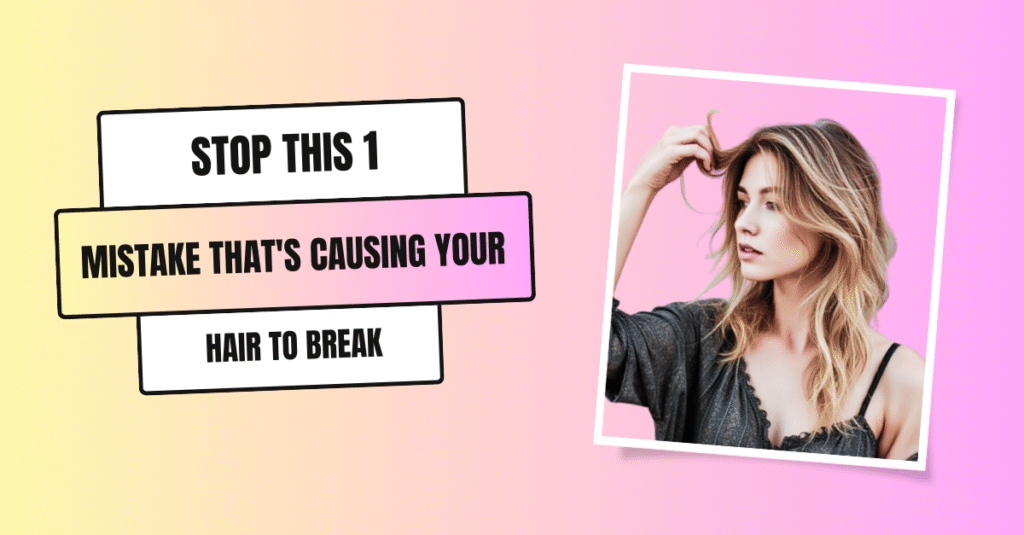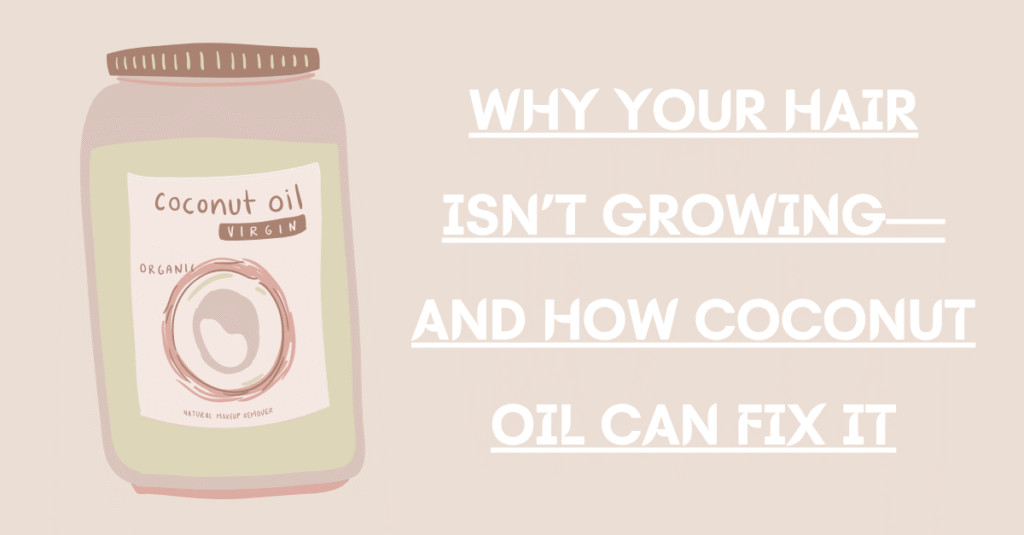Coconut Oil for Dandruff: Miracle Cure or Just Hype?
Introduction
Dandruff—those stubborn white flakes and relentless scalp itch—can make even the best hair days feel ruined. If you’ve ever frantically brushed off your shoulders before a meeting or avoided dark shirts to hide the snowstorm of flakes, you’re not alone. Nearly 50% of adults struggle with dandruff at some point.
In the search for solutions, coconut oil keeps popping up as a “natural miracle cure.” Beauty gurus rave about it, grandmothers swear by it, and social media is flooded with before-and-after success stories. But does it really work, or is it just another overhyped trend?
Some people claim coconut oil eliminates dandruff within weeks, while others say it made their scalp greasier and worse. So, what’s the truth?
In this deep dive, we’ll separate fact from fiction. You’ll learn:
-
The science behind coconut oil’s effect on dandruff
-
How to use it correctly (and who should avoid it)
-
Alternative remedies if coconut oil doesn’t work for you
By the end, you’ll know whether coconut oil is worth adding to your haircare routine—or if you’re better off with other treatments.
Understanding Dandruff: What Causes Those Flakes?

Before we talk about coconut oil, let’s understand why dandruff happens in the first place. Contrary to popular belief, it’s not just about a dry scalp.
The Main Culprits Behind Dandruff:
-
Malassezia Fungus – This yeast-like microbe lives on everyone’s scalp but overgrowth leads to irritation, flaking, and itching.
-
Seborrheic Dermatitis – A more severe form of dandruff involving redness, oily scales, and inflammation.
-
Dry Skin – Cold weather, harsh shampoos, and dehydration can worsen flaking.
-
Product Buildup – Silicones, sulfates, and styling products can clog pores, leading to flakes.
-
Sensitivity to Hair Products – Some shampoos and conditioners trigger allergic reactions that mimic dandruff.
Most anti-dandruff shampoos contain zinc pyrithione, ketoconazole, or selenium sulfide—ingredients that fight fungus and reduce flaking. But if you prefer natural remedies, coconut oil is often the first recommendation.
The Science Behind Coconut Oil and Dandruff
So, does coconut oil actually help? Let’s look at the research and mechanisms behind its effects.
1. Antifungal Properties (Fights Malassezia)
Coconut oil contains lauric acid, a fatty acid with strong antifungal and antibacterial properties. A 2019 study in the Journal of Medicinal Food found that lauric acid effectively combats Malassezia, the main fungus linked to dandruff.
Unlike mineral oil or synthetic conditioners, coconut oil penetrates the hair shaft, delivering moisture and antimicrobial benefits directly to the scalp.
2. Deep Moisturizing (Reduces Dry Flakes)
One of the biggest causes of dandruff is a dry, dehydrated scalp. Coconut oil acts as an emollient, sealing in moisture and preventing flakiness.
A 2003 study in Dermatitis found that coconut oil improves skin hydration better than mineral oil, making it great for dry scalp-related dandruff.
3. Anti-Inflammatory Effects (Soothes Irritation)
An itchy, inflamed scalp worsens dandruff. Coconut oil has anti-inflammatory compounds that calm redness and irritation.
4. Strengthens Hair & Prevents Breakage
Dandruff often leads to hair thinning due to constant scratching. Coconut oil reduces protein loss in hair, keeping strands stronger and less prone to damage.
How to Use Coconut Oil for Dandruff (The RIGHT Way)

Coconut oil isn’t a one-size-fits-all solution. How you apply it matters. Here’s the most effective method based on dermatological insights:
Step 1: Choose the Right Coconut Oil
-
Virgin (unrefined) coconut oil – Best because it retains all natural compounds.
-
Cold-pressed – No chemicals used in extraction, making it purer.
-
Avoid refined coconut oil – Loses some beneficial properties during processing.
Step 2: Warm It Up
-
Take 1-2 tablespoons of coconut oil and warm it slightly (not hot) for better absorption.
Step 3: Apply to Scalp (Not Just Hair!)
-
Part your hair into sections.
-
Massage the oil directly into your scalp (not just the hair strands) for 5-10 minutes.
-
This stimulates blood circulation and ensures the oil penetrates deeply.
Step 4: Leave It On (Timing Matters)
-
For moderate dandruff: Leave for 30 minutes to 1 hour before washing.
-
For severe dandruff: Leave overnight (cover with a shower cap to avoid mess).
Step 5: Wash Thoroughly
-
Use a mild, sulfate-free shampoo to avoid stripping natural oils.
-
Double cleanse if needed to prevent greasy residue.
Bonus: Coconut Oil + Antifungal Boosters
For extra dandruff-fighting power, mix coconut oil with:
-
Tea tree oil (1-2 drops per tablespoon) – Potent antifungal.
-
Apple cider vinegar (1:1 ratio) – Balances scalp pH.
-
Aloe vera gel – Soothes irritation.
When Coconut Oil WORSENS Dandruff (Who Should Avoid It?)
Despite its benefits, coconut oil isn’t for everyone. Here’s when it might backfire:
1. If You Have an Oily Scalp
Coconut oil is heavy and can clog pores, leading to more buildup and flakes.
2. If You Have Seborrheic Dermatitis
Some dermatologists warn that fungus feeds on oils, potentially worsening the condition.
3. If You Don’t Wash It Out Properly
Leaving residue can attract dirt, leading to more irritation.
4. If You’re Allergic to Coconut Oil
Patch test first—some people experience redness, itching, or rashes.
Alternative Natural Remedies for Dandruff
If coconut oil doesn’t work for you, try these:
-
Tea tree oil shampoo (proven antifungal)
-
Apple cider vinegar rinse (balances pH)
-
Aloe vera gel (soothes inflammation)
-
Zinc pyrithione shampoo (for fungal dandruff)
Final Verdict: Is Coconut Oil Worth Trying?
✅ YES, if you have:
-
Dry scalp-related dandruff
-
Mild flaking without severe inflammation
-
No sensitivity to coconut oil
❌ NO, if you have:
-
Oily scalp or seborrheic dermatitis
-
Allergic reactions to coconut
-
Severe, persistent dandruff (see a dermatologist)
Conclusion
Coconut oil can be an effective, natural remedy for dandruff—if used correctly. Its antifungal, moisturizing, and anti-inflammatory properties make it a powerful option for many. However, it’s not a cure-all, and some people may experience worsened flakes or irritation.
The best approach? Patch test first, use it strategically, and if it doesn’t work, explore other treatments. Dandruff is manageable—whether with coconut oil or alternatives.
Have you tried coconut oil for dandruff? Share your experience in the comments!
Read More: Why Your Hair Isn’t Growing—And How Coconut Oil Can Fix It

My name is Rohit Vagh and I’m a content writer specializing in fashion and lifestyle. I have three years of experience in this field and have written various articles. My writing style is creative and engaging, and I strive to create content that resonates with my readers. I have a deep passion for fashion and am constantly researching the latest trends and styles to make sure my readers are up to date. I’m excited to continue my career in blogging, and I’m always looking for new opportunities in the fashion and lifestyle space.





